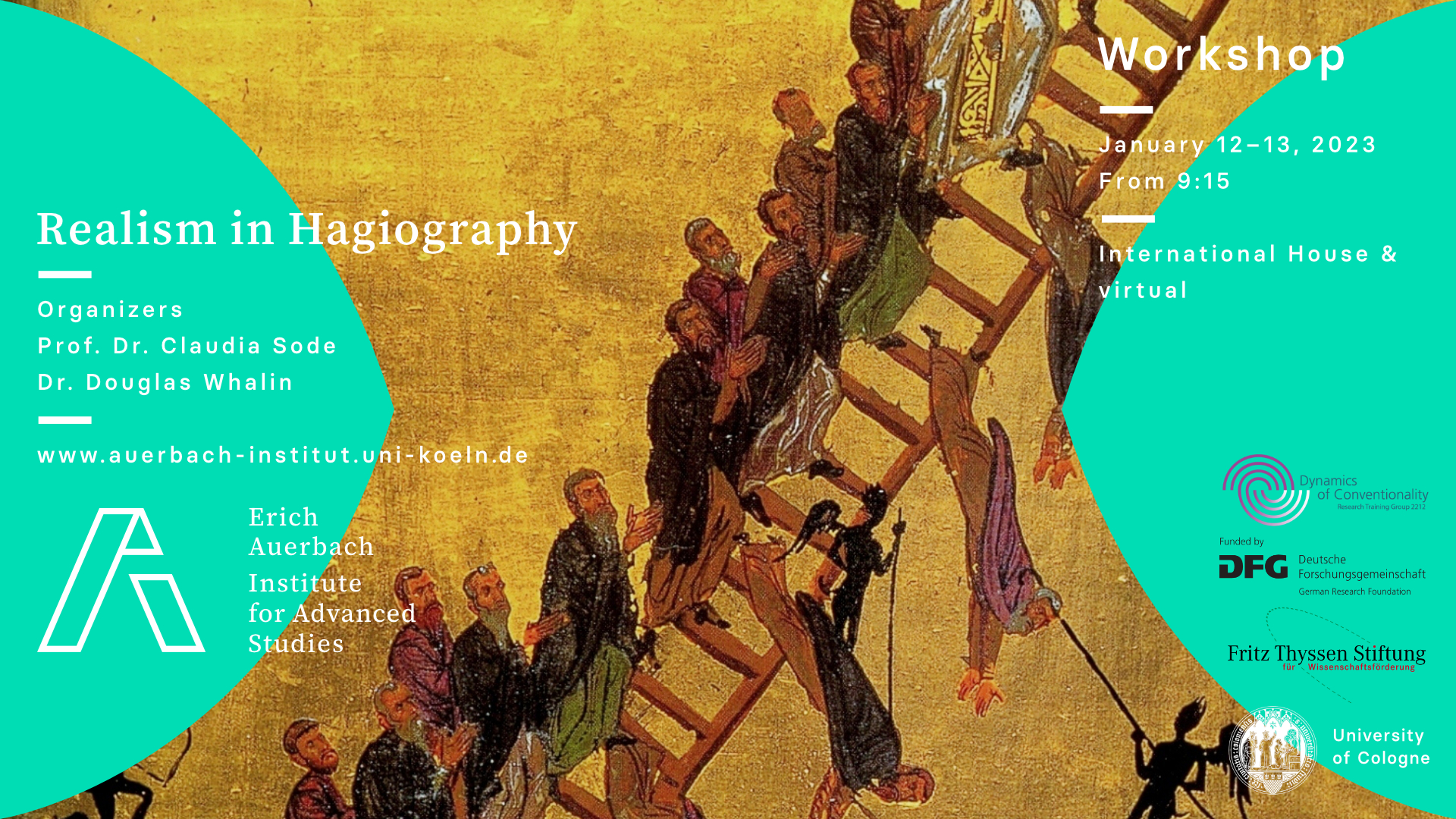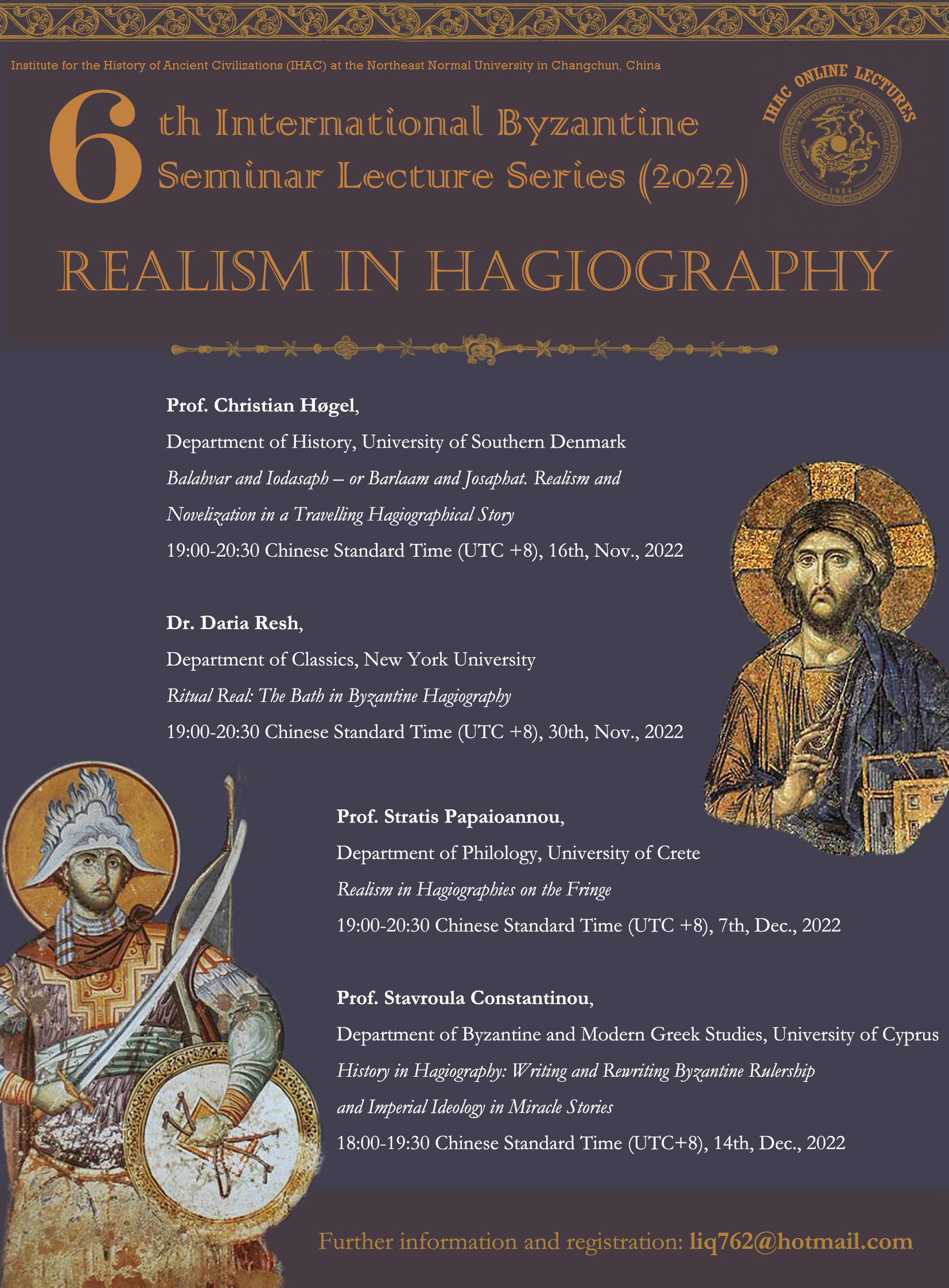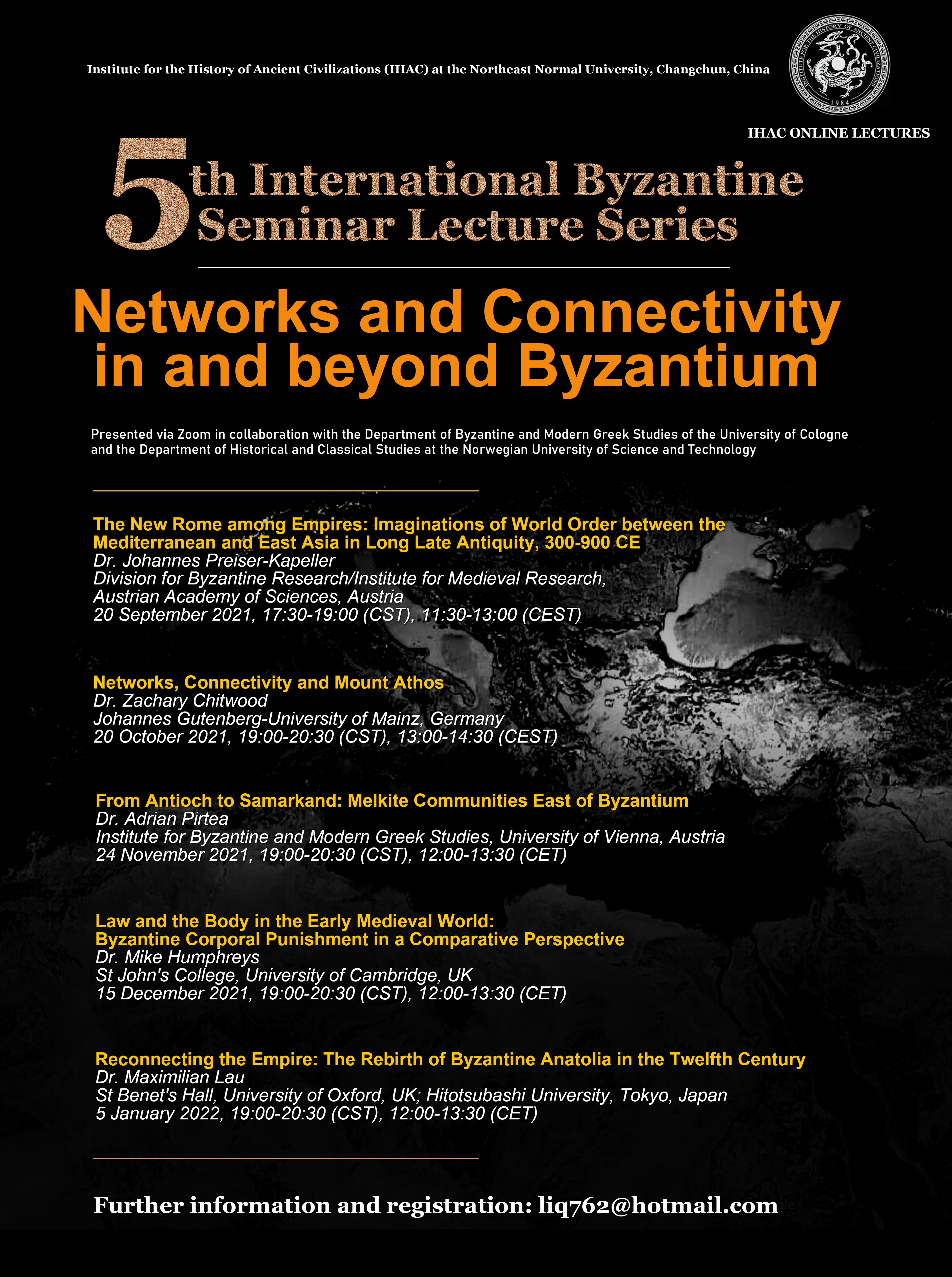Douglas Whalin late antique historian
Realism in Hagiography Workshop Announcement
An international workshop titled ‘Realism in Hagiography’ will be hosted at the University of Cologne on 12-13 January 2023. This event is the focus for my three-month Junior Research Fellowship hosted by the Erich Auerbach Institute for Advanced Studies and partly funded thanks to the Bible in Middle Byzantine Hagiography project co-directed by... Read more 29 Nov 2022 - 2 minute read
IHAC 6th International Byzantine Seminar
A new academic year, a new seminar series! This year I will again co-host the Byzantine seminar series as part of being a Visiting Professor for the Institute for the History of Ancient Civilization (IHAC) at Northeast Normal University (NENU), Changchun, Peope’s Republic of China. The event is organized in collaboration with the Department of B... Read more 19 Aug 2022 - less than 1 minute read
Review of Maréchal, Public baths and bathing habits in late antiquity in BMCR
For the Brwn Mawr Classical Review, I recently wrote a review of Sadi Maréchal, Public baths and bathing habits in late antiquity: a study of the evidence from Italy, North Africa and Palestine A.D. 285-700. Late antique archaeology (supplementary series), volume 6. Leiden; Boston: Brill, 2020. This volume, a revision of the author’s PhD thesis,... Read more 06 Nov 2021 - 1 minute read
IHAC 5th International Byzantine Seminar
This year I will help host the Byzantine seminar series as part of being a Visiting Professor for the Institute for the History of Ancient Civilization (IHAC) at Northeast Normal University (NENU), Changchun, People’s Republic of China. The event is organized in collaboration with the Department of Byzantine and Modern Greek Studies at the Unive... Read more 16 Sep 2021 - less than 1 minute read
Dumbarton Oaks & HMML Coptic Summer Program
In July 2021 I again had the pleasure to attend an intensive language program, this time in Armenian, co-hosted by the Hill Manuscript Museum and Library and the Dumbarton Oaks Research Library. The program was originally scheduled to be held in-person in Collegeville, Minnesota in July 2020. The course was rescheduled to this year, and although... Read more 09 Aug 2021 - 1 minute read


